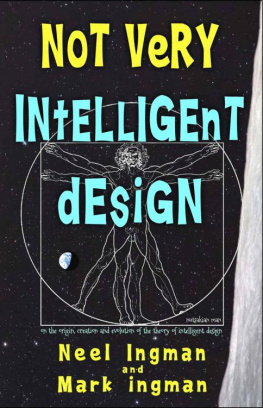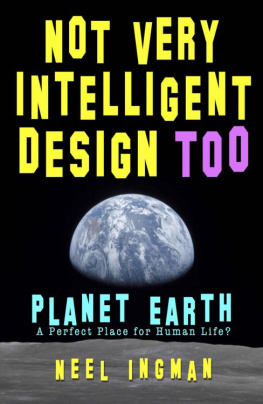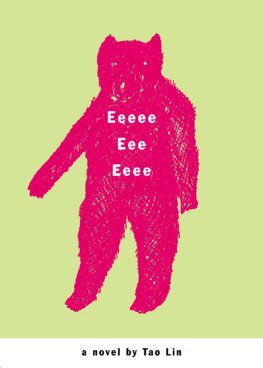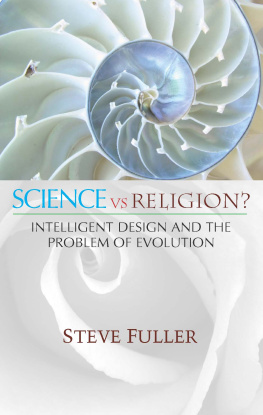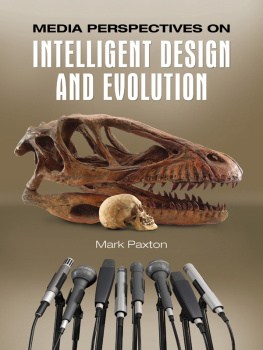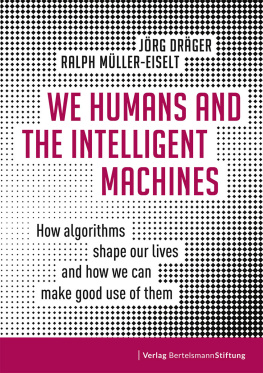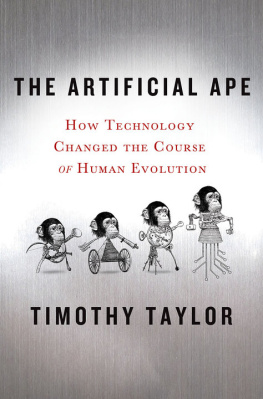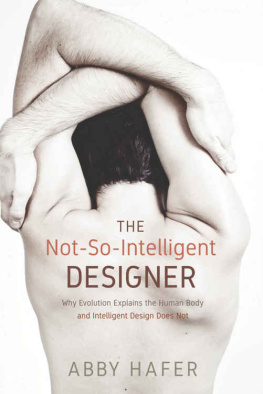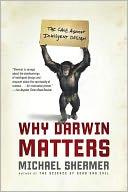Not Very
Intelligent
Design
Not Very
Intelligent
Design
On the origin, creation and evolution of
the theory of intelligent design
by
Neel Ingman
and
Mark Ingman
Copyright Mark Ingman Neel Ingman 2018
All rights reserved
About the Authors
Mark Ingman is the less famous brother of reclusive blogger, Neel Ingman, who is almost entirely unknown for publishing his conversations with God, the Pope, and other things at neelingman.com .
Mark Ingman has never seen or experienced anything without feeling the need to criticize, rate and redesign it. When he walks into a house hell almost always notice that the bathroom is in the wrong place, and that the alignment of the structure totally ignores the path of the sun.
Neel Ingman is less opinionated, but is still prepared to discuss and, if necessary, debate any topic at any time, with anybody or anything.
Sturgeon's Law says that 90% of everything is crap. Mark Ingman thinks at least 99% of everything is crap.
Most conversations with Mark and Neel involve something getting a mark out of ten and may contain up to 90% digression and hearsay.
Copyright 2018 by Mark Ingman and Neel Ingman
All rights reserved. This book or any portion thereof
may not be reproduced or used in any manner whatsoever
without the express written permission of the publisher
except for the use of brief quotations in a book review.
Version 1.1
First Publication, 2018
Palaceno House
Auckland
New Zealand
ISBN 978-0-473-43342-0 (Softcover)
ISBN 978-0-473-43343-7 (Epub)
ISBN 978-0-473-43344-4 (Kindle)
ISBN 978-0-473-43345-1 (PDF)
ISBN 978-0-473-43346-8 (iBook)
neelingman.com
NotVeryIntelligentDesign.com
kneelingman.com
Available from Amazon.com
To be notified about new books by this author,
sign up to the mailing list at
neelingman.com
Contents
Introduction
Body Parts
Top
Middle
Bottom
Other Stuff
Infancy and Dotage
Physical Performance
Pain and Diseases
Behavior and Psychology
Woman
Conclusion
INTRODUCTION
The imagination of the human mind is a wonderful thing. Arguably the most wonderful thing about us. Without imagination, invention is impossible. If you can't imagine that an axe may be useful, you've no chance of inventing one.
But there are limits to our imagination, and they seem to have a lot to do with our physicality. We can easily form a clear mental picture of the chunk of time it takes for the blink of an eye, a football match, or a few lifetimes. Much beyond that it gets a lot harder. A ten thousandth of a second is fifty times longer than a five hundred thousandth of a second, but, in our minds they may as well be identical.
Likewise with a long time. A clear understanding of a few thousand years is hazy at best, and millions of years is downright impossible. A million years and a million million years are effectively identical to all humans, except for some scientists, but they also claim to understand nine dimensional space so who knows what the hell's going on in those brains.
The inability to grasp extremes of time is connected to the phenomenon of time appearing to accelerate as we get older. Everybody agrees that it happens, but not many seem to have given very much thought as to why it happens. Our personal mental clocks began ticking the moment we were born (or some time after that, nobody remembers the early months), so that's when time began for us. And that's why a year is a very long time for a five-year old (less than a fifth of all known time from the very beginning) and goes by very quickly for a fifty-year old (a mere 2 percent of a lifetime so far).
Our comprehension of time is linked to, and limited by, our intrinsic personal clock.
Similarly, our comprehension of size and distance is limited by our physical size and mobility. By the time you can fit millions of something on the head of a pin, it's impossible to imagine what one of them, say a proton, might look like in the palm of your hand. Then think about an electron, which is 2000 times smaller. No mental picture available. They may as well be identical.
A few hundred years ago, being about as much time as we can get a reasonable grasp of, most people didn't travel much beyond the thicket over the hill behind the stream. They would have had great difficulty comprehending how far it was to walk five hundred miles, let alone to walk five hundred more, because back then nobody had walked a thousand miles just to be the man to fall down at her door.
These days we can easily comprehend distances such as the circumference of the earth, because we travel that far, but even the moon would have most people struggling to get an accurate handle on how many days it would take to walk there, were that possible. (It would take about nine years non-stop, at a brisk clip. If you kept going it would take 168,754 years to get to Pluto. Longer if you were to stop for lunch or a nap.)
The point of all of which is to say that none of us has any grasp of how long ago time began, or how far it is to the edge of the universe, because these things are way beyond the limits of human imagination, let alone actual comprehension.
Which doesn't seem to bother the two groups of people who claim to know quite a lot about the beginning of time. Scientists and theologians. And of course they don't agree. To prevail in that debate would require being able to define the beginning of everything, including the beginning of time. Arguments are made using unfathomably complicated mathematical equations on one side and old books on the other. Even with those aids, it's still incomprehensible to normal people, as the scientific explanation ceases to apply just short of the goal line, and, on the other side everything apparently requires a creator, except for the creator. Something either came from nothing, before which not even time existed, or there was always something there. Neither side gets anywhere near providing a basic, easily explained, verifiable understanding of the concept of where we came from or how we got here.
So we're going to leave aside the debate between evolution and creationism. Instead we'll just take a good close look at the evidence that's actually in front of us. The human body as it currently exists.
Works of this nature generally begin with one or more initial assumptions. For the sake of argument, which is really the point of this whole exercise, and because we enjoy a good argument, we'll assume the position that the human animal was designed by an intelligent designer.
From that assumption well analyze and judge the design of each part of the human body, out of ten, in terms of excellence or even plain competence, given the tools of the designer. (The designers tools may or may not have been governed by what we currently understand to be the laws of biology, chemistry, physics etc, as the designer may well have designed those too.)
To illustrate the marking system, here are a couple of examples.
The original Chevrolet Corvair was such a piece of crap that only Corvair enthusiasts or collectors could give it more than half a point. A new S-class Mercedes is at least an eight, regardless of any personal prejudice.
The first aircraft that flew was a magnificent achievement but next to a Dreamliner its barely a one compared to the 787's eight or nine. And it only gets the one as a nod to the era in which it was created. If someone designed a plane like that today, it would get zero. At the time of its invention, it was an easy ten. And the Dreamliner will probably be more like a four or five in fifty years' time. Or less, if the engines keep blowing up.
The designer of man, however, doesn't qualify for any era-related consolation points for things that may not have been understood back in the day, as he's also credited with designing the whole universe, so he must have already understood everything there is to know about everything.
Next page
